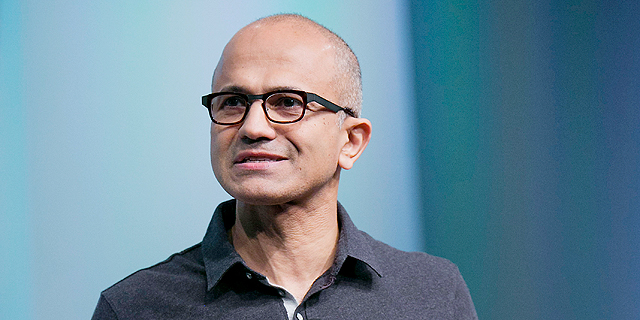
Microsoft's $1B climate fund hasn’t backed any Israeli startups despite opening a local office two years ago
Despite opening a dedicated office in Israel to support climate-tech innovation, Microsoft’s Climate Innovation Fund has yet to invest in any local startups, leaving the country’s burgeoning climate-tech sector without promised support.
About two and a half years ago, the tech giant Microsoft announced with much fanfare that its global Climate Innovation Fund (CIF) would expand to Israel and invest in local startups in the climate-tech field.
However, a Calcalist investigation reveals that, despite this announcement and Israeli startups submitting investment requests, the fund has not made a single investment in any Israeli company. The promise remains unfulfilled even after two and a half years.
Microsoft's Climate Innovation Fund, established in 2020, aims to accelerate the development and maturation of breakthrough climate technologies. The fund also supports projects that expand existing solutions, directs investments into companies, and collaborates with other investors to achieve global climate goals. Its focus includes carbon reduction, water optimization, waste management, ecosystem preservation, and addressing underserved investment markets.
The fund was set up with a target of investing $1 billion globally by 2024. While CIF does not regularly release detailed public reports, a post by Microsoft’s Chief Sustainability Officer Melanie Nakagawa in September 2024 revealed that $761 million had been allocated to climate technologies, including carbon capture and sustainable aviation fuel.
In August 2022, CIF announced its first-ever representative office outside the U.S. would open in Israel, headed by Michal Braverman-Blumenstyk, Corporate Vice President at Microsoft, Managing Director of Israel R&D Center and CTO of Microsoft Security. At the time, Braverman-Blumenstyk expressed optimism, saying, "Israel has the potential to become a climate-tech powerhouse." Yet, despite this optimism, no investments have materialized, and the bold promise has faded.
The need for climate-tech investments in Israel is critical. While the number of startups in the field is growing, investments in the sector have declined sharply. In the first half of 2024, only $551 million was invested in Israeli climate-tech companies—a 60% drop compared to the same period in 2023.
This decline mirrors global trends. Climate-tech funding globally fell by 29% over four consecutive quarters, from $79 billion in late 2022 to $56 billion in late 2023. Venture capital and private equity funding also saw a decline during this period, dropping from $799 billion to $673 billion.
A December 2024 report from consultancy PWC highlights that both capital flows and deal volumes in climate-tech dropped below pre-2019 levels. In contrast, the U.S. climate investment market has remained relatively stable due to the Inflation Reduction Act, which spurred growth in sectors such as renewable energy and AI-driven climate solutions. AI-focused climate projects in the U.S. alone raised $1 billion more in the first three quarters of 2024 than in all of 2023.
Related articles:
Meanwhile, tech companies, including Microsoft, have struggled to balance sustainability goals with the soaring resource demands of AI technologies. Microsoft’s energy consumption peaked in 2023, driven by the explosion of generative AI. According to the company’s annual sustainability report, greenhouse gas emissions increased by 29% compared to 2020, and water consumption rose by 23%, largely due to cooling data centers needed for AI operations.
This resource-intensive growth has cast doubt on Microsoft’s ability to meet its own sustainability targets set just four years ago. CEO Satya Nadella has called climate change “the defining issue of our generation,” but the corporate race to dominate AI suggests that environmental priorities are taking a backseat.
In response, Microsoft stated, "To date, Microsoft has invested over $760 million from our $1 billion Climate Innovation Fund (CIF) in the development and expansion of green technologies globally, including carbon capture, sustainable aviation fuel (SAF), and low-carbon construction solutions."
